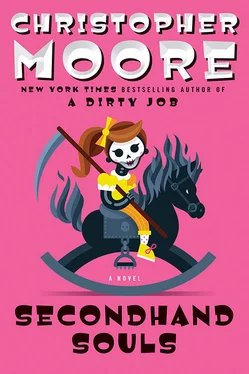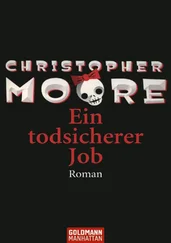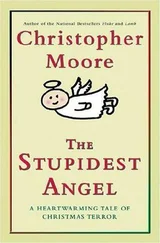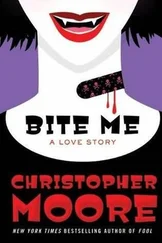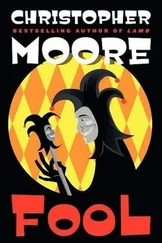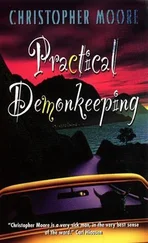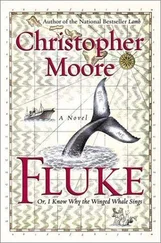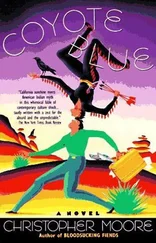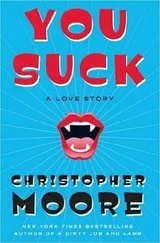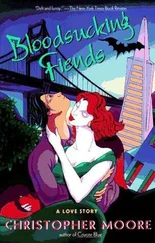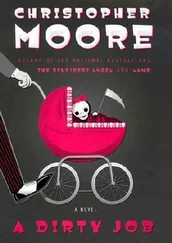“No, thank you. Thank you for speaking French with me, no one does that anymore. I spent my semester abroad in Paris, you know?”
She told him this every day he worked, and every day he replied, “Ah, the City of Light. So many delights. What, I wonder, is your favorite?”
And here, her answer often changed. “I loved walking through the Jardin du Luxembourg in the autumn, when the wind was blowing a little, and chestnuts would drop out of the trees and sometimes hit one of the old men who sat on the benches reading. Plop, right on the head.” She laughed, then coughed. “Now I’m the old one.”
“Nonsense, chère .” He was not so young himself, and by the end of his workday, gray stubble would show on his dark cheeks as if they had been dusted with ash.
“You want some oxygen?”
“Non, merci,” she said.
He was not authorized to put the cannula in her nose and turn on the oxygen, but he had done it before when she was in discomfort, and he did a lot of things he was not authorized to do. He rolled his bucket to the corner, dipped his mop in the water, then leaned on the ringer until it was nearly dry. When he wiped the mop out into the corner, the room filled with the smell of the lemon disinfectant, but above it he could still detect the acid smell of her organs shutting down. Helen had been in hospice for six months, longer than most of the patients. He had become attached to her and he was sad her time was coming to an end. Speaking French to her was a kindness he didn’t get to grant to most of the patients, although he made an effort to try to do something actively kind for each one of them, every day, even if it was only asking after a grandchild, changing the channel on the television, or singing a soft song to them as they slept.
They all would pass, and he would grieve for each one, even if he was only the man who mopped the floors, gathered the laundry, emptied the bins. He would say hello to each one every day, if they were conscious or not, and say good-bye each evening as well, so if they died in the night, good-bye would not go unsaid. But Helen concerned him more than the others. Her name had not appeared in his date book and he did not see the object around her glowing red. From her symptoms, he could tell he had only days to retrieve her soul vessel, and he did not want to go to her house, as he sometimes did. He did not want to see the life she had left, which was grand and full and opulent; he knew because she had told him, and he did not want to see what she was leaving because it would make him more sad.
He mopped from the wall to her bedside, then ran the mop under her bed and up onto some very nice Italian shoes. On the other side of the bed stood a sharp, well-dressed Latin man who was looking around the room with some urgency—trying to look around Baptiste, not at him.
“Who are you?” Baptiste asked, and the man in the nice suit leapt back as if he’d encountered an electric fence at Helen’s bedside.
“Santa Maria!” he said. Then he looked back quickly, as if something might be following. Finally, he looked at Baptiste. “You can see me?”
Baptiste smiled. “I can, but Madame Helen cannot.”
“I’m blind,” said Helen.
“What are you, some kind of ninny? Say hello to Madame ,” said Baptiste.
Charlie paced across the parlor of the Three Jewel Buddhist Center, the claws on his duck feet snagging occasionally on the Persian rug, at which Audrey tried not to cringe. She was not attached to material things, but it was a nice rug.
“I’m telling you, Audrey, they’re squirrelly,” Charlie said.
“Really? Squirrelly? Who would have thought?”
“No, I don’t mean it that way. Well, yes that way, but what I’m saying is that the Squirrel People are going loopy, not exactly dirt-eating loonies, although there is a little of that. Okay, fine, they’ve turned into dirt-eating loonies. There, I’ve said it.”
“So they won’t help us find the Death Merchants or the missing soul vessels?”
“I went to ask them, but they…” Charlie considered for moment whether he wanted to say exactly what he had seen, and if he knew, in fact, what he had seen. “Look, they’re my friends, but the Squirrel People are loopy.”
“We prefer People of the Squirrel ,” said Bob, the beefeater-bobcat guy, who stepped out from behind a wastebasket in the butler’s pantry and strode into the parlor using his spork as a walking stick. “Or just, the People .”
“You shouldn’t lurk, Bob, it’s not polite,” said Audrey.
“Your hair looks nice,” said Bob.
Audrey had not put any product in her hair and had just brushed it up and over, so it fell softly to her left shoulder. It did look nice, Charlie thought, and he wanted to punch Bob for having said so before him.
“He’s just trying to distract you,” Charlie said.
“I heard you two talking,” said Bob. “So we checked the places where we found the souls before, the Death Merchants.”
“And?” Audrey said.
“When were you spying on us?” Charlie asked.
“They’re all gone,” Bob said, ignoring Charlie’s question. “All of the Death Merchants that we took soul vessels from were killed by the Morrigan except Charlie and the tall Minty One. I don’t know if there are others.”
“When were you going to tell us?” Audrey asked.
“Now?” Bob ventured.
“So the Squirrel People are still going out in the city?” Charlie asked. “Using the sewers?”
“Mostly,” Bob said.
“What about the Death Merchants’ date books?” Audrey asked. “The soul vessels?”
Bob shrugged.
Charlie said, “So, if they’re like me, their books kept getting names—”
“They aren’t like you,” Bob said. “Their souls moved on. You’re a monstrosity with a human soul.”
Audrey cringed but pushed on: “Have your people seen any new Death Merchants?” The Squirrel People could see the glow of soul objects, as could she, and she’d never really questioned why, but it had been a useful talent when she was misguidedly having them steal souls from the Death Merchants’ shops.
“We haven’t looked,” said Bob. “I only had them look in the places we’d been before because I heard you two talking.”
“No soul vessels lying around either?” Charlie asked.
“Nope,” said the bobcat.
“If all those souls have gone uncollected—”
“Plus the ones in your and Rivera’s books,” Audrey said. She looked to Bob. “Could the People of the Squirrel help Charlie find the soul vessels in his book, at least?”
“We need new outfits,” said Bob.
“Pardon?” Audrey said.
“You only made us one set of clothes each. They’re wearing out.” He presented the elbow of his red coat, revealing a hole there.
Audrey said, “I suppose I could patch—”
“I’d like leather armor,” said Bob. “Like a samurai. Like a shogun.”
“But strictly speaking, you don’t even need clothes,” Audrey said.
“Strictly speaking, no one does,” said Bob.
“Your clothes take a lot of time to make, Bob. They’re miniature theatrical costumes. The stitching is actually more difficult than regular clothes because they’re smaller. I don’t think I can—”
“Fine,” said Bob. “ The People do not need you.” He walked back into the butler’s pantry.
“She buys the groceries,” Charlie called after him.
“We can find food.”
“Clothes are merely adornments of ego, anyway,” Audrey said.
Bob stopped, walked back, stood in the doorway, and dropped his spork. He undid the brass buttons of hs long red coat and pulled it open, revealing crisscrossed strands of muscle running over bone—some of the ham-colored fibers had crept up his neck and were starting to form the beginnings of cheeks on the bobcat skull that was his face. The high beefeater collar had hidden the progress.
Читать дальше
